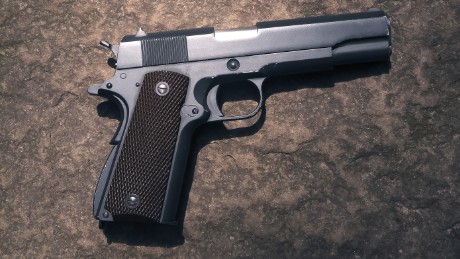
(CNN)The scent of chaos hangs heavy in the air. Donald Trump evokes it in Cleveland. Islamic State sows it in Nice, Brussels, Paris, Orlando. Britain is immersed in it after Brexit, while the EU struggles to prevent its onset amid mounting crises of migration and political legitimacy. Ukraine and Syria are being torn apart by it, and Turkey looks fragile after a failed coup.
To apply a metaphor from the science of chaos, we are, it seems, in a moment of phase transition. A state of relative global order -- the Long Peace, as Steven Pinker describes it in "The Better Angels Of Our Nature" -- has existed since 1945. We"re now moving into a new configuration of competing powers and ideologies, the structure of which we cannot predict, except to assume it will be very different from what we have known.
The intervening period of transition, which we may have entered, could be chaotic, destructive and violent to a degree that no one born after 1945 in the industrialized countries that constructed the post-war order can imagine.
The great battles of the era now underway or emerging are not those which dominated the late 20th century -- left versus right, east versus west, communist versus capitalist. Since the fall of the Berlin Wall, these binaries have had less and less relevance. It is the dark forces of nationalism and religious sectarianism that now drive global politics, fueling the rise of a crude, xenophobic populism in the advanced capitalist world that we have not seen since the 1930s.
Trump is the most vivid manifestation of it, but we see it everywhere we look in formerly stable social democracies -- Germany, Denmark, the UK, France, Greece, even Australia, where the demagogue Pauline Hanson"s One Nation party was returned to the Senate in the recent election. Appeals to nationalism and fear of the "other" are replacing notions of collective security, common interest and the moral duty to care for those in need such as asylum seekers.
Trump openly praises Putin and Saddam Hussein for their leadership and effectiveness (which in Saddam"s case, lest we forget, included the use of chemical weapons on his own people). NATO, he declares, is past its sell-by date, as are all international climate change and trade agreements which he judges to be against America"s interests.
Fear is contagious
This media environment sees isolated events which would once have been of mainly local importance, such as the Lindt Caf siege in Sydney (a "lone wolf" terrorist attack in which two people were killed), become global in their impacts through the immediacy and visceral nature of their media coverage. But it is also an efficient way to disseminate anxiety, panic and fear.
Donald Trump understands this, and uses Twitter like no other presidential candidate before him. He is able to further stir up his already enraged constituency with simplistic, authoritarian solutions to complex social problems like illegal migration and global terrorism.
IS, like al-Qaeda before it, understands it. Jihadi John cuts off the head of an American or Japanese journalist, and the uploaded, socially networked video becomes a weapon of mass psychic torture, spreading virally.
Some Britons voted for Brexit because they had seen those videos, or heard about them. They believe they can be quarantined from radical Islamism by rejecting Merkel"s humanitarianism and closing the doors on the continent.
9/11 cost al-Qaeda $500,000. It cost the world trillions in military expeditions, heightened airport security and other responses, not to mention the hundreds of thousands of deaths inflicted in the "war against terror" since 2001. IS atrocity videos are well produced, but cheap to make, and the communicative power of digital networks does the rest. They are at the heart of a new kind of asymmetrical warfare.
The chaos Edward Lorenz described in nature applies also to our globalized, digitized societies. From small bifurcations in the social fabric emerge catastrophic, potentially system-destroying consequences.
One crisis feeds into another. Trump"s success fuels French National Front leader Marine Le Pen. The UK Independence Party"s Nigel Farage encourages Putin in his dream of winning back Ukraine and the Baltic states. And as the mass murderer of Nice follows the attack at Ataturk airport, both outdone by the atrocity of Bataclan, we enter a period of cascading, interconnected crises, where "black swan" moments become part of everyday life, and the unthinkable becomes mainstream.
Read more: http://www.cnn.com/2016/07/26/opinions/viral-terror-the-conversation/index.html





No comments:
Post a Comment